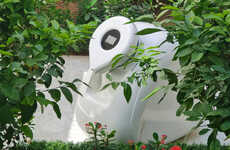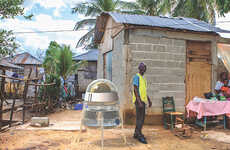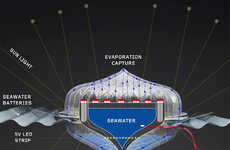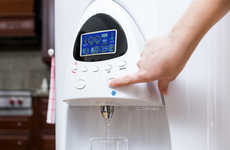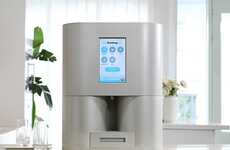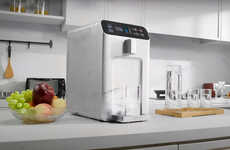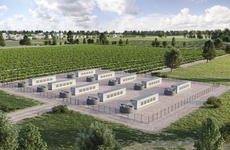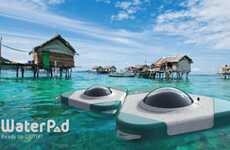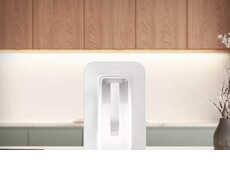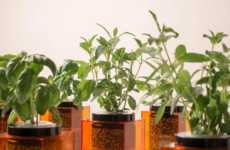
This Invention is Used to Harvest Water From the Air to Drink
Alyson Wyers — May 11, 2017 — Eco
References: drl.mit.edu & springwise
Access to clean drinking water is a considerable barrier preventing developing communities from overcoming poverty, but this solar-powered device uses humidity to harvest water. Developed by Massachusetts Institute of Technology (MIT) Device Research Laboratory scientists, the invention turns vapor into potable water. The MIT team recently published a paper in Science called 'Water harvesting from air with metal-organic frameworks powered by natural sunlight.'
The small device, which uses compounds created by University of California Berkeley researchers two decades ago, is opened at night and then closed when the sun comes up to harvest water. This can produce enough clean water for one person to drink.
Sustainable solutions to provide drinking water are paramount, especially when considering two thirds of the earth's population are affected by water shortages.
The small device, which uses compounds created by University of California Berkeley researchers two decades ago, is opened at night and then closed when the sun comes up to harvest water. This can produce enough clean water for one person to drink.
Sustainable solutions to provide drinking water are paramount, especially when considering two thirds of the earth's population are affected by water shortages.
Trend Themes
1. Solar-powered Water Harvesting - Utilizing solar power to extract water from the air, providing a sustainable solution for clean drinking water.
2. Humidity-based Water Collection - Developing devices that leverage humidity to extract potable water, addressing the challenge of water scarcity in communities.
3. Metal-organic Frameworks for Water Harvesting - Exploring the potential of metal-organic frameworks in collecting water from the atmosphere, offering a novel approach to water security.
Industry Implications
1. Renewable Energy - Applying solar power technology to water collection devices, revolutionizing access to clean drinking water.
2. Water Technology - Incorporating humidity-based water harvesting devices into the water industry, improving water accessibility and sustainability.
3. Materials Science - Advancing the use of metal-organic frameworks in water harvesting, creating disruptive solutions for addressing global water shortages.
4.3
Score
Popularity
Activity
Freshness

